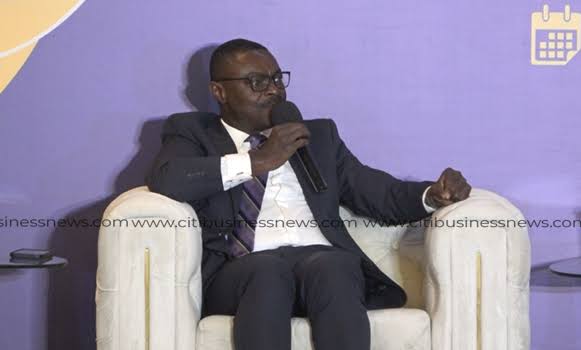The Bank of Ghana promised that its quest to facilitate the digital currency, also known as the e-cedi, will not disrupt or collapse the mobile money (MoMo) system.
The regulator predicts that the deployment will actually benefit the MoMo value chain.
The Assistant Director in charge of Fintech and Innovation at the BoG, Clarence Blay, reaffirmed that the Central Bank is dedicated to protecting the businesses of MoMo Agents as it positions itself to implement the e-cedi while speaking at the MTN Momo Stakeholder Forum, which explored the impact of the Central Bank’s digital currency on future monetary policy and digital payment.
“Concerning those who are currently facilitating access to digital payments as agents, this is going to be a positive disruption. It means that all the actors in the space are going to benefit. The Central Bank is not going to issue a fiat that everything has to be digital currency.”
He added, “We recognize that the space is made up of diverse persons with diverse needs and for inclusivity, it is important that the need of everyone is catered for. Some will want physical cash, others will want digital currency. We are not trying to take away cash and replacing it with digital currency. We are responding to everyone’s needs.”
When questioned as to whether the digital currency will have the electronic transfer levy applied in any form, Clarence Blay explained that “the E-cedi is a currency. The Central Bank issues currencies with no tax attached to them. If there’s going to be any levy at all, it’ll be a levy on transactions. But the e-cedi as it is now, has no levy on it”.
In order to create a more digitally accessible public sector and promote transparency, the government has made digitization a key policy and recently introduced a number of programs, including the Ghana Post digital address system, mobile money interoperability, and the e-CEDI, which is not yet operational.
The digital Cedi, or “e-Cedi,” is designed to complement and act as a substitute for physical cash. By promoting a variety of digital payments and fostering a secure and reliable payment infrastructure in Ghana, it advances the country’s cash-lite agenda.
Additionally, it aims to make it easier to make payments without a bank account, contact information, or smartphone, increasing the usage of digital services and promoting financial inclusion across all demographics.
With the advent of the e-cedi, the banking industry has been given the responsibility of being proactive in designing unique digital solutions for various customer categories.
In June of last year, the Central Bank announced plans to launch a three-phase test of the currency to assess its viability and eventual circulation.
However, the regulator claimed that plans are well along for implementation at the MoMo Stakeholder Forum. But no deadlines or timelines were provided for the introduction.
On his part, Eli Hini, CEO of MTN Mobile Money Limited, urged mobile money suppliers to prepare for the advantages of the adoption of the digital currency.
He insists that “just like mobile money came to create opportunities for people, other innovations will come with its opportunities, and we should be ready to embrace it as much as possible”.
“Today, our settlement cycle takes a bit of time but the implementation of the e-cedi will address that problem so that we won’t have to hold money and wait for settlement to happen before we can have value. Also, our if our agents want to do rebalancing of their float, they have to carry physical cash to the bank. The e-cedi will help to address that and speed up the process. So innovation will always come and you have to make use of them,” he explained.
The MoMo Stakeholder Forum was organized as part of MTN Ghana’s mobile money month celebration.
According to Mr. Hini, the event was organized to allow the “Central Bank have the opportunity to educate all of us on the objectives, background and what the overall picture looks like when it comes to the e-cedi”.









